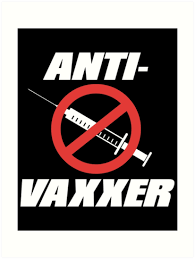The Dangers of Anti-Vax

March 20, 2019
The World Health Organization has recently claimed that vaccine hesitancy or the Anti-vax movement has made the top 10 global health threats for 2019.
Vaccination prevents 2-3 million deaths per year and is the most practical and preventative way to avoid diseases. Cases and studies are showing a 30 percent increase in the measles globally; there is an apparent return of this disease in countries and regions that almost completely got rid of the measles.
Since the movement gained more widespread popularity there have been many measles outbreaks. Earlier this month, at the Newark Airport it was reported that an individual may have been infectious during their travels, so anyone in the airport on March 4 from 9 p.m. to March fifth 9 a.m. could have been exposed to measles.
Even with this knowledge, there are still people with the belief that not getting vaccinated is the side to stay on. It is concerning that a certain group of people still refuse to get vaccinated and risk harming themselves or others.
Anti-vaxxers have the belief that there is a connection between getting vaccinated and getting infected. The people of the anti-vax movement fall victim to their naive far stretched theories, cultural epidemiology, or their genuine lack and knowledge of understanding. In a standard vaccine, there is going to be some of the bacteria from the disease in the shot, this is because the vaccine is helping the immune system build an immunity to the disease, thus acting as a preventative measure.
Another theory that is a contribution to the anti-vax movement is the belief that vaccinations and autism are linked together. For families, specifically, mothers, that choose alternative parenting methods over conventional parenting styles make up a huge part of the anti-vax demographic.
The idea that vaccinations and autism have a connection has been disproven multiple times by scientists over the past two decades.
Although some are unaware of the dangers of being unvaccinated, a majority of the anti-vax population is aware of the statistics and research disproving their opinions on vaccines while disregarding fact they do not realize the harm they are doing to the health and well being of people across the country.
Fortunately, anti-vaxxers make up the minority, vaccine hesitancy only affects about two percent of the population. That being said, can it be argued that approximately 65,140,000 unvaccinated people across the country can be a danger?
These people not participating in vaccines are not only harming themselves but harming those with weaker immune systems or reasons they should not get the vaccine.
According to Dr. Manish Sadarangani of the Oxford Vaccine Group, community immunity, better known as herd immunity is an effective way to protect people from diseases. While Anti-vax supporters happily remain unvaccinated, there are those unable to get vaccinated because of health conditions, age, and other factors.
Because of this, they also need the same protection as everyone else. Therefore those that can get vaccinated should take advantage of not only their health benefit but the benefit of others. What herd immunity does is decrease the likelihood that a community will get a disease because although germs can travel quickly, preventing this will promote a more healthy community.
The anti-vax epidemic also caused Italy to exclude children six years old and younger from nursery and kindergarten schooling. Children ages six to sixteen are not legally allowed to miss school, when not vaccinated their parents have to pay fines.
This worldwide outbreak needs to be put to an end, this is currently one of the most medically progressive times in history, the facts show just how important it is to get vaccinated, one of the most simple steps and preventative measures to act as protection from disease.
The proof is evident in the statistics: children and adults need to be vaccinated to promote a healthy community free of exposure to the minimal disease.















